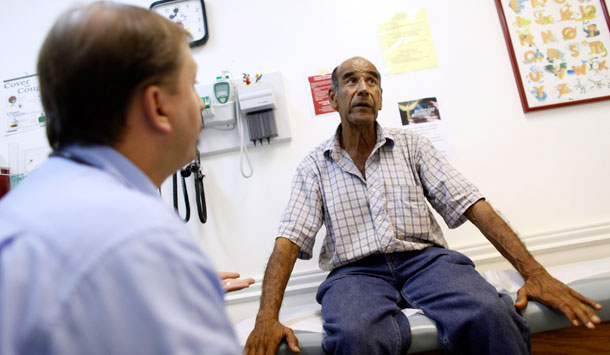The Patient Protection and Affordable Care Act (ACA), signed into law by President Obama in March of 2010, has stirred up much controversy and debate. Don't worry, I am not here to have a philosophical or political debate, or to try to convince that my way of seeing things is the right one. However, as a Latina living in the US, and a psychologist serving the Hispanic community, I wanted to take a closer look at the numbers and share them with you.
There are currently 50.5 million Latinos in this country, comprising 16% of the population. It is estimated that by 2050 they will make up 30% of the US population. Latinos are also significantly more likely than their White counterparts to be diagnosed with numerous chronic diseases (such as diabetes and cancer), have lower life expectancy rates, and have notoriously poor access to quality health care. Because so many Latinos are likely to be uninsured, they will likely benefit from the ACA in numerous ways. Below are some number recently released by reputable data sources assessing the potential impact of this new law.

New data collected RAND published by the US Department of Health and Human Services suggest that because of the ACA:
- 5.4 million Latinos who would otherwise be uninsured will gain coverage by 2016.
- 763,000 Latino young adults (ages 19-25) will now be covered by their parents’ employer-sponsored or individually purchased health insurance.
- Over 6 million Latinos will now have access to preventive services with no cost-sharing (i.e., deductible, co-payment, etc.).
- 3.9 million elderly and disabled Latinos who receive health coverage from Medicare will now have access to an expanded list of preventive services with no cost-sharing. These benefits will include an annual wellness visit with a personalized prevention plan, as well as access to other important screenings, including those for colorectal and breast cancer, obesity, and osteoporosis.
The ACA will also:
- Provide lower-cost health care options, the very reason that caused 32% of Hispanics to be uninsured to begin with.
- Provide viable options to purchase affordable plans to the 2.3 million Hispanics who are self-employed and would otherwise be unable to afford private policies for their small business.
- Increase funding available to the more than 1,100 community health centers, which is important for the Hispanic community, as research suggests that 35% of the population served by these centers is Hispanic.
- Make oral contraceptives more accessible to Latinas by eliminating cost-sharing. This will not only reduce unwanted pregnancies, but will also help manage the other non-pregnancy conditions treated by birth control, like polycystic ovarian syndrome, a condition that affects 13% of all Latinas.
- Eliminate pre-existing condition clauses, which will provide 6.1 million Latinos with pre-existing conditions access to the health care they need, including the half of all Latino children who are currently at risk for developing diabetes.
- Increase the racial and ethnic diversity of doctors, nurses, and other health care professionals. For example, the law has helped to nearly triple the number of clinicians in the National Health Service Corps, a network of primary care providers serving communities with significant medical, dental, or mental/behavioral health needs
- The ACA also invests in data collection to enable research on health and health care disparities to help the government better understand the causes of such disparities and to develop effective programs to eliminate them.
- Increase the Medicaid statutory cap for Puerto Rico, which unlike the other 50 states is the only one to have said cap. It will also increase the Medical Assistance Percentage (FMAP) from 50 to 55% for residents of Puerto Rico and allocate $925 million for subsidies to Puerto Rico residents who participate in the Commonwealth’s Affordable Insurance Exchange
By taking a glance at these numbers, it seems clear why the majority of Hispanics (66%) support this law. But it is important to remember that this law could also have a positive effect for the non-Hispanics among us. When fully implemented, the law will provide access to coverage for an estimated 32 million Americans who are now uninsured, which may very well include you or your loved ones.
Showing 1 reaction
Sign in with
Facebook Twitterhttp://rospher.com/